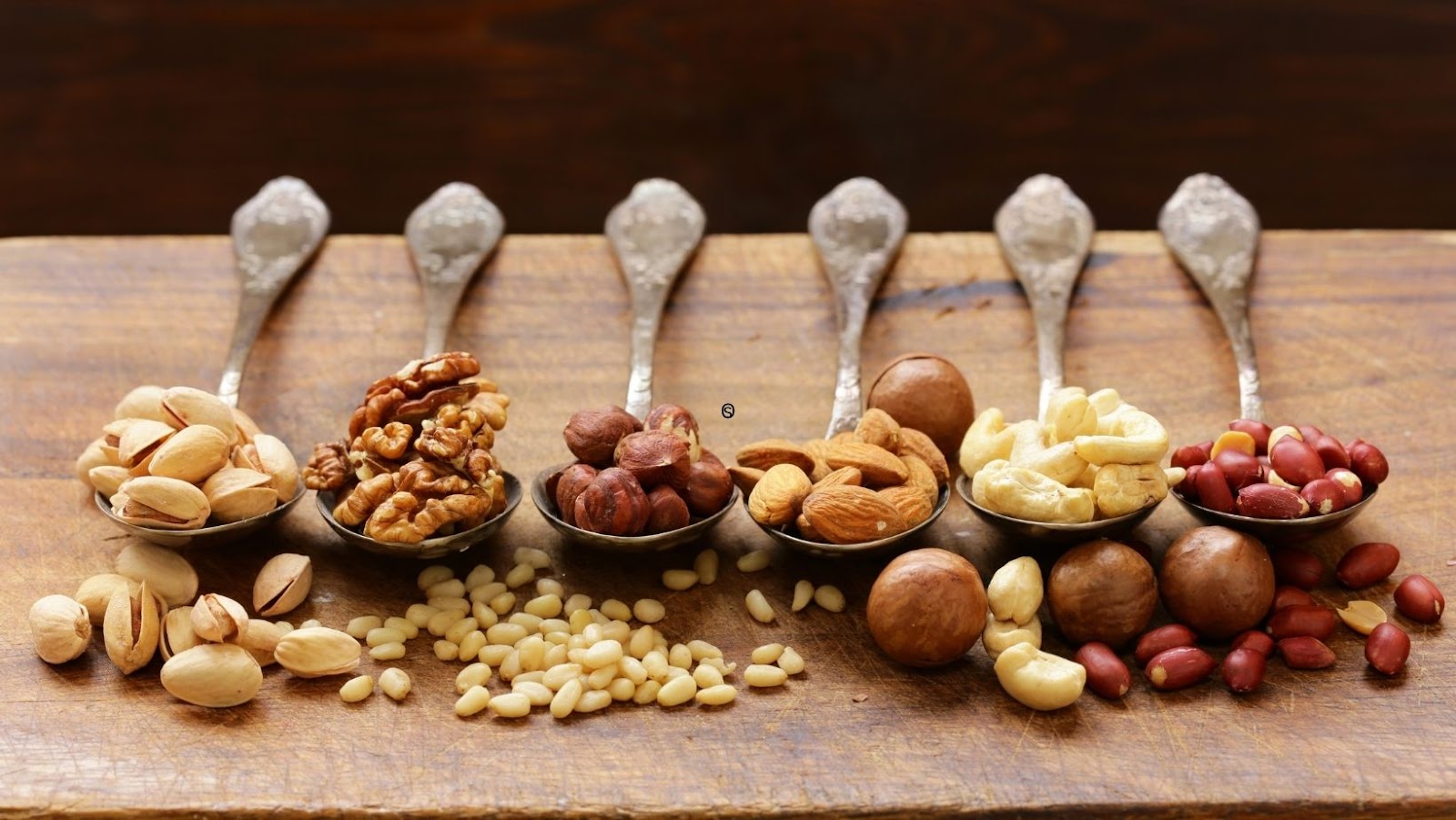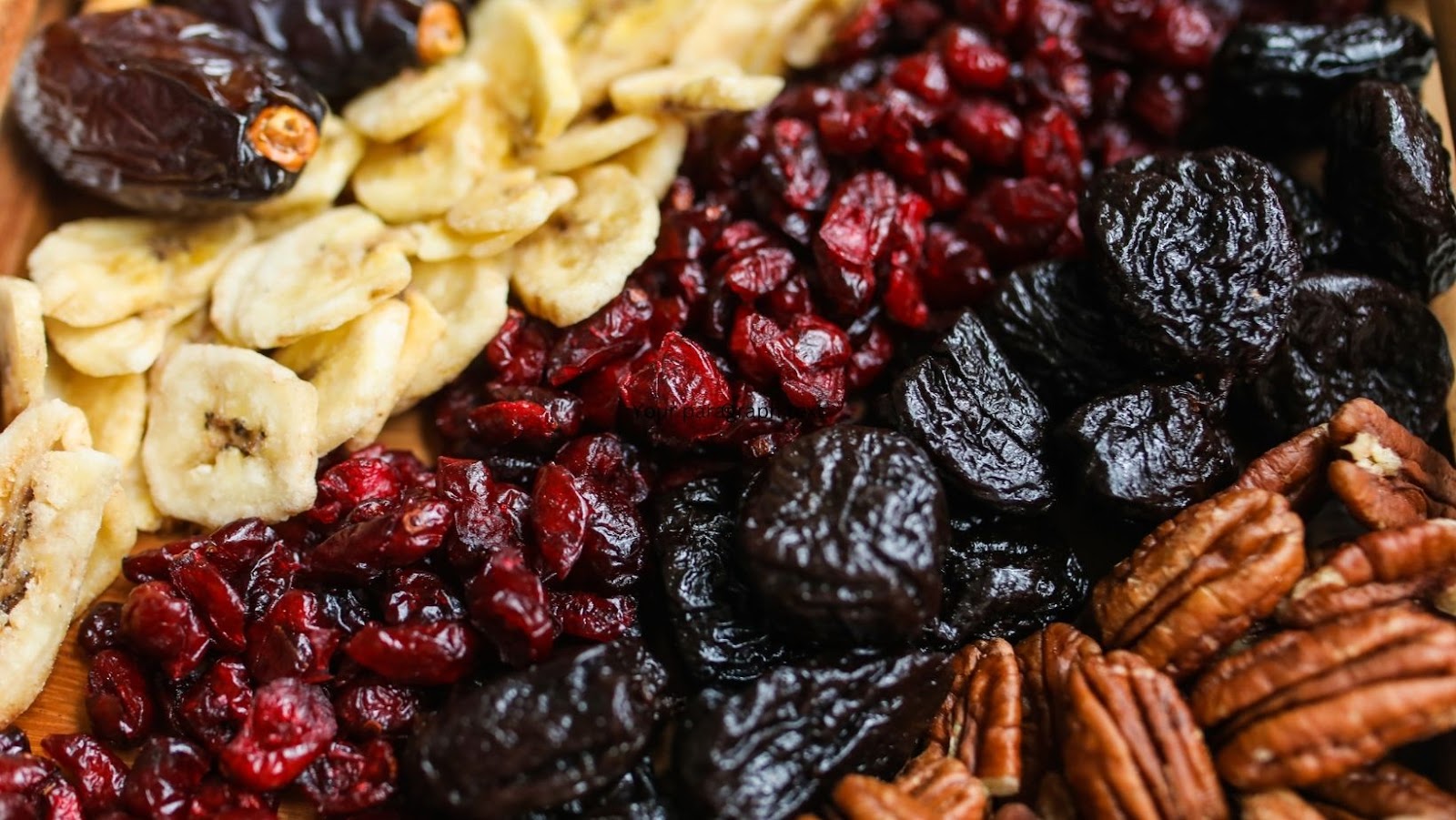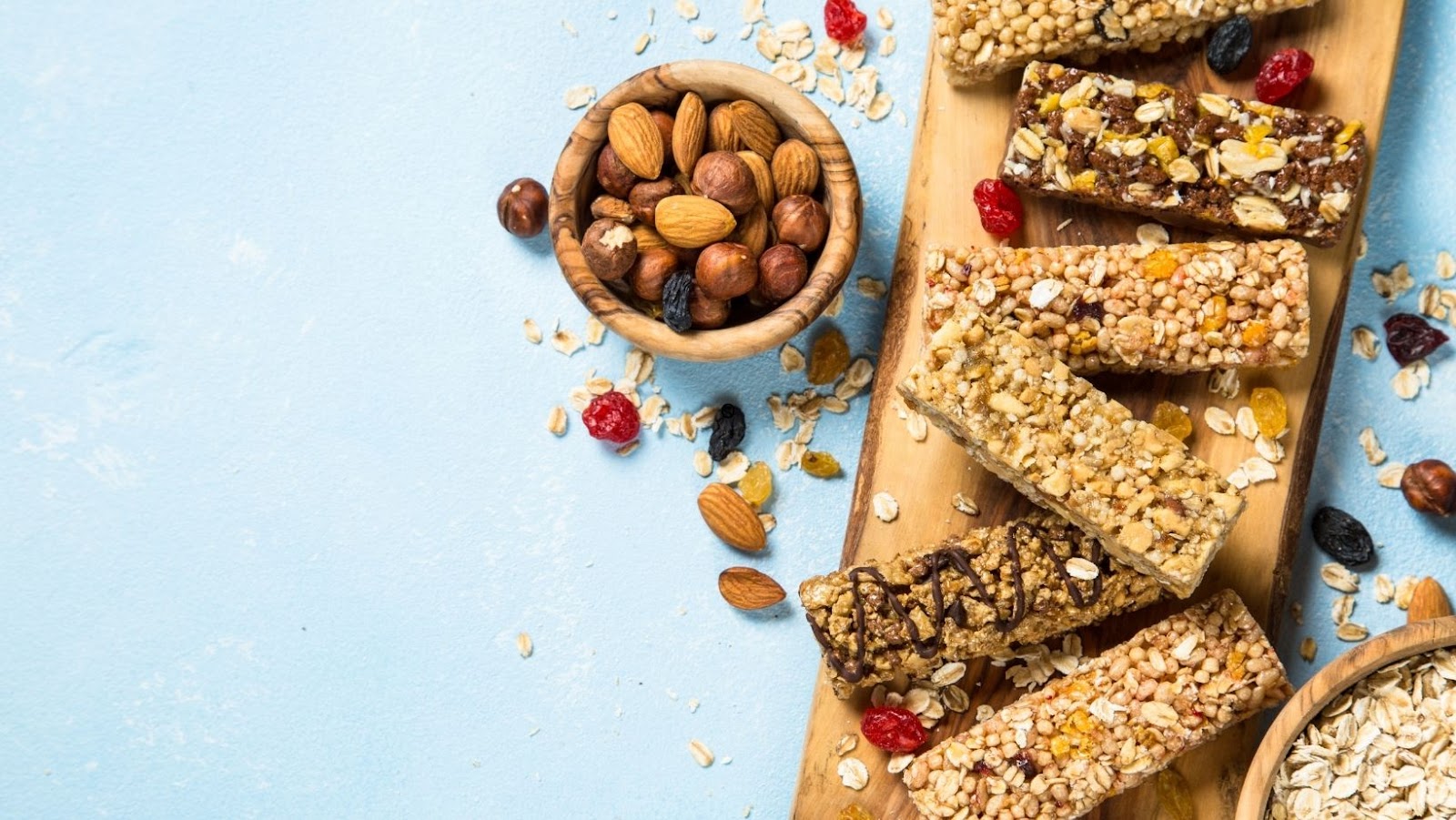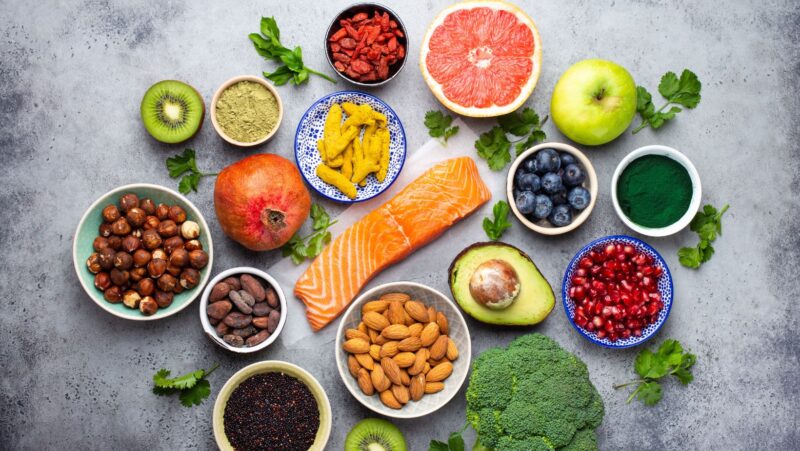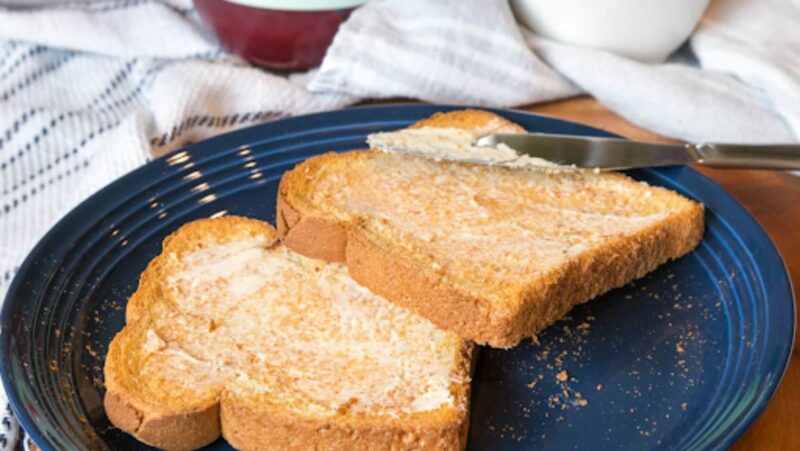
Nuts are a great snack for those following a keto diet and offer a wide range of nutritional benefits. There are many varieties of nuts and some are even low-carb, making them great for keto. Eating nuts on the keto diet provides a great source of healthy fats, minerals and protein. In this article, we will discuss the different types of nuts that are suitable for a keto diet, as well as their health benefits.
What nuts can you eat on the keto diet
Nuts are a great source of healthy fats and other essential nutrients when following a keto diet. Eating nuts can provide you with energy and help you reach your weight loss goals. Most popular nuts such as almonds, cashews, macadamias, pecans, pistachios and walnuts can fit into your keto meal plan in moderation.
When eating nuts on the keto diet some key considerations are carbs intake from the nut source and whether or not the nut is roasted/salted. The nutritional value of most nuts is similar based on portion size, but they all contain high amounts of fat and low to moderate amounts of carbohydrates that can aid in helping to keep you full which can lead to weight loss when consumed in moderation.
Almonds are one of the best sources of healthy fats, antioxidants, dietary fibre and minerals when combined with other combinations such as eggs or avocado making it a great carb-free breakfast choice. Walnuts provide omega-3 fatty acids which contributes towards a healthy heart; macadamia nuts help provide energy while controlling hunger; cashews contain trace minerals like zinc and iron; pecans offer anti-inflammatory benefits while pistachios are high in protein making them a great addition to salads or snacks.
Essentially any type of nut can be eaten on the keto diet as long as it fits within your daily carb count for that day – however, keep in mind that different types have different macros that may affect your levels differently. As an added bonus, many nuts have protective properties against chronic diseases like diabetes and heart disease due to their nutrient content including high amounts of antioxidants like vitamin E; therefore, make sure to include them regularly in your meals for better overall health even if you’re not following a ketogenic diet!
Types of Nuts
Eating nuts is a great way to get essential vitamins and minerals while following the keto diet. Nuts are also a great source of healthy fats, fibre and protein, making them a perfect snack while on the keto diet. This article will explore the types of nuts you can eat on the keto diet and how they benefit your health.
Almonds
Almonds are a delicious and versatile type of nut that offers many health benefits. Not only are almonds high in healthy fats, making them ideal for the ketogenic diet, but they are also an excellent source of plant-based protein, dietary fibre and other essential vitamins and minerals. Although technically not a nut, almonds contain beneficial fatty acids such as omega-3s and omega-6s as well as manganese, potassium, magnesium and phosphorus.
Unlike most other types of nuts, almonds are low in carbohydrates, making them a great choice for those following the ketogenic diet. Eating nuts on the keto diet can help to satisfy hunger while providing important nutrients like protein and healthy fat. Just one serving (1 ounce) of almonds contains 6 grams of protein and 14 grams of fat – more than enough to help you stick to your dietary goals throughout the day.
In addition to providing essential nutrients for your body’s daily needs, almonds have been found to have positive effects on digestive health due to their high fibre content. As part of a balanced diet including whole foods like fruits, vegetables and whole grains, consuming adequate amounts of carbohydrates from nuts such as almonds can help reduce inflammation associated with gastrointestinal issues such as irritable bowel syndrome (IBS). Finally, adding nuts into your everyday routine can also support weight management due to their satiating properties – helping you stay satisfied long after eating!
Walnuts
Walnuts are one of the most popular nuts eaten all over the world. They contain a high amount of healthy omega-3 fatty acids, which helps to reduce inflammation in the body. Walnuts are also rich in antioxidants, providing many health benefits. On a keto diet, walnuts can be eaten as part of a healthy food plan.
Walnuts make a great source of plant protein and provide essential vitamins and minerals, including calcium, magnesium and phosphorus which are important for strong bones and teeth along with cardiovascular health. Eating walnuts may also reduce your risk of diabetes.
When eating walnuts on the keto diet it’s important to note that due to their higher fat content they should still be consumed in moderation as part of an overall health plan. Try adding walnuts to salads, oatmeal dishes or yoghurt for a healthy snack or meal accompaniment. Walnut oil can also be used as an alternative to other cooking oils when sautéing or baking foods like fish and vegetables when preparing low-carb meals on the keto diet.
Macadamias
Macadamias are rich in healthy monounsaturated fatty acids and have the highest fat content of all nuts. They are also a great source of vitamin A, calcium, magnesium and iron. Because of their high fat content, macadamias are a great snack for those following the keto diet — just be sure to limit your portions so you don’t overdo it on the calories. To maximise your health benefits, pair macadamias with lean proteins like fish and low-carb vegetables such as spinach for a well-rounded meal. Macadamias can also be enjoyed in nut butter form or used as a topping for lightened-up dishes like avocado toast or salads.
Pecans
Pecans are a type of tree nut native to North America and a popular addition to many dishes, including pies and cakes. They are highly nutritious, offering numerous health benefits on the keto diet. Pecans are an excellent source of both protein and healthy fats, making them a great choice for those following a ketogenic diet.
Pecans provide 10g total fat per 28g serve, mostly consisting of unsaturated fats like oleic acid and linoleic acid.By including these types of healthy fats into your daily diet you will be able to achieve a consistent energy flow throughout the day as well as boost your metabolism and concentration levels. The high protein content in pecans also helps keep you feeling fuller for longer and reduces your cravings for unhealthy snacks in between meals.
In addition, pecans contain important vitamins like vitamin E which is essential for immunity as well as other nutrients like zinc which improves digestion; copper that aids in joint maintenance; iron that helps reduce exhaustion; manganese to keep bones strong; magnesium to release muscle tension; calcium that aids in maintaining healthy blood vessels; thiamin that boosts energy metabolism; phosphorus which promotes strong bones
and selenium that maintains brain function. Selenium is an especially rich source found within different types of nuts but particularly found within pecans – its rich antioxidant properties help slow down cognitive decline associated with ageing as well as helping protect against cancerous changes within cells associated with radiation exposure and carcinogens from food or environment sources.
Pistachios
Pistachios (Pistacia vera) are a type of nut originating from the lands around the Mediterranean, the Middle East, and Central Asia. They’re closely related to cashews, but they have an unmistakable nutty-salty taste, hint of sweetness and crunchy texture that make them a favourite snack among many people.
Pistachios belong to a group of nuts called “stone fruits” which also include walnuts, hazelnuts and almonds. Pistachios are easily recognizable by their green-coloured outer shells. On the keto diet, pistachios have LESS CARBS compared to other tree nuts – making them an ideal choice for Paleo and low-carb fans.
High in protein
Nuts are a great source of protein when following the ketogenic diet. Protein is essential for building, maintaining, and repairing all the cells in your body – from skin to muscle. Plus, it’s important to keep eating enough protein in your diet for energy production and to support general health and wellbeing.
Nuts range from relatively low in protein (such as Brazil nuts) with 4-5 grams per ounce to high in protein (such as almonds) with 6-7 grams per ounce. This amount of dietary protein can be very beneficial on a low carb high fat diet since it helps balance out the reduced carbohydrates and therefore reduces the risk of hypoglycemia or low blood sugar levels.
Some of the best nuts for the ketogenic diet include almonds, pistachios, walnuts, Brazil nuts, macadamia nuts and hazelnuts. All these nut varieties contain high amounts of monounsaturated fats – which help reduce harmful cholesterol levels while increasing beneficial HDL levels – followed by saturated fats necessary for hormone production and polyunsaturated fats which are said to be essential fats that cannot be produced by our body. They also have varied content in vitamins like A, B6, C plus minerals like zinc and selenium that are important antioxidants necessary for healthy functioning of our metabolism.
High in healthy fats
Nuts are an important part of any keto diet, as they are a great source of healthy fats. They can also provide vital nutrients and many other benefits. Many types of nuts are naturally low in carbs, making them ideal for those following a keto diet. In addition to being rich in healthy fats, nuts are also a great source of protein that can help with weight loss and maintaining muscle mass.
When choosing which nuts to eat on the keto diet, there is some variation among types. Certain types such as macadamias, almonds, walnuts, peanuts and cashews are low in carbs and high in healthy fats. This makes them an excellent choice for anyone on a keto diet who is looking to get more healthful fats into their daily routine. Some other types of nuts such as pistachios and chestnuts are relatively high in carbs so they should be consumed sparingly while on the diet.
Nuts can provide many nutritional benefits when eaten regularly including potent antioxidants that may help reduce chronic disease risk. In addition, eating nuts has been linked to improved heart health, fat loss and overall good health and well-being. Eating a few handfuls of your favourite type of nut each day is an easy way to get your daily recommended amount of healthy fat into your diet without having to worry about exceeding your carb limit for the day or consuming bad fats or processed oils found in many processed foods.
Rich in vitamins and minerals
Nuts are rich in vitamins and minerals, making them a healthy choice for the Keto diet. However, eating nuts on a ketogenic diet can be complicated due to the higher calorie and fat content of most nut varieties. Fortunately, there are some lower calorie, lower fat options for individuals trying to lose weight but still get nutritional benefits from nuts.
Nuts such as almonds, macadamia nuts and cashews are a great source of heart healthy fats including Omega-3 fatty acids. They also contain essential minerals like potassium, magnesium and iron which are vital for good health. Additionally, certain types of nuts like walnuts contain ALA (alpha-linolenic acid) an omega-3 fatty acid that has been scientifically shown to help reduce bad cholesterol levels in the blood stream while at the same time increasing the body’s healthy HDL cholesterol levels. Almonds contain high amounts of Vitamin E which helps protect our cell membranes from damage by free radicals and has anti-aging properties. Peanuts provide good amounts of biotin which helps us convert fats into energy more efficiently as well as pantothenic acid (Vitamin B5), phosphorus, magnesium and zinc, all important minerals that our bodies need in order to work properly.
Many nuts can be eaten raw but you can also roast or toast them for additional flavour or you can use them in recipes such as coating fish or adding crunch to salads etc. Just remember that it’s best to avoid adding sugar or honey to your nut snacks if possible, these will only increase your carbohydrate intake and could put you out of ketosis altogether so it’s best to keep portion sizes small when indulging!
How to Incorporate Nuts into Your Keto Diet
Nuts can be a great addition to the keto diet. Not only are they packed with healthy fats and proteins, but they can be a great source of important nutrients and vitamins. Adding nuts to your keto diet can help you reach your macronutrient goals while also providing a variety of health benefits. Let’s explore what nuts you can eat on the keto diet and the benefits they bring.
Eat them as a snack
Snacking on nuts is a great way to incorporate them into your keto diet. Most nuts are relatively low in net carbs (carbs minus fibre) and can be beneficial for not only keeping you feeling satiated between meals, but for providing quick energy when needed. Due to their high fat content, it’s important to note that eating too many nuts can lead to an increased overall calorie intake, so use portion control if necessary.
When choosing what type of nut to snack on, opt for seafood which are higher in fat than others and generally low in carbs, such as macadamia nuts and pecans. Almonds, cashews and walnuts also make great choices as long as you watch your portion sizes—just 1/4 cup of walnuts contains four net carbs. Additionally, Brazil nuts are a good source of selenium but should be consumed in moderation due to their relatively high carbohydrate count per serving.
When consuming nut-based snacks on the keto diet try pairing them with another source of healthy fats such as a cheese wedge or two tablespoons of natural peanut butter. This will help ensure that these snacks do not contain too many carbohydrates while also providing sustainable energy throughout the day.
Use them as a topping for dishes
Nuts can add a delicious crunch and flavour to many dishes. Since they contain good amounts of mono- and polyunsaturated fatty acids, as well as essential minerals like magnesium, zinc and manganese, they are an ideal topping for your keto meals.
Nuts can be added to dinner salads, omelettes, stir fries and casseroles – adding a unique flavour and texture to the dish. Furthermore, mashed nuts can be served as toppings over fish or chicken dishes such as those made with salmon or tuna. For a complete meal that is rich in healthy fats and proteins, add nuts to your plate of food!
You may also sprinkle chopped nuts over high-fat smoothies or yoghurt for an extra boost of healthy fats. Baked goods like low carb muffins or cakes taste great with a sprinkle of walnuts or pecans for added flavour. If you’re looking for an extra nutritious snack option on the keto diet, simply top off kale chips with some almonds or cashews!
Bake with them
Incorporating nuts into your keto diet is an easy way to make meals healthier and more filling. Nuts are a good source of healthy fats, protein and a variety of vitamins and minerals. Overdoing it with nuts though, can sabotage your low-carb eating plan, so be sure to look out for portion sizes. Here are some ideas for incorporating the most popular varieties:
Bake with them
Almonds, walnuts and hazelnuts all make excellent ingredients for baking. Use ground or chopped nuts in place of traditional flour when making cakes, cookies and muffins. For an even healthier option, try replacing some of the butter in recipes with nut oil or nut butter! You’ll get the flavour you’re looking for while adding healthy fats to your diet.
Also consider adding crumbled nuts as a topping on pies or tarts before baking and sprinkling them over yoghurt or oatmeal bowls for added crunch!
Conclusion
In conclusion, nuts are a great snack to include as part of a healthy keto diet. Unlike other low-carb snacks, they provide nutritionally dense calories that can help satisfy hunger and keep you feeling full longer. Eating nuts regularly may even help reduce the risk of chronic diseases such as heart disease, diabetes, and some types of cancer.

